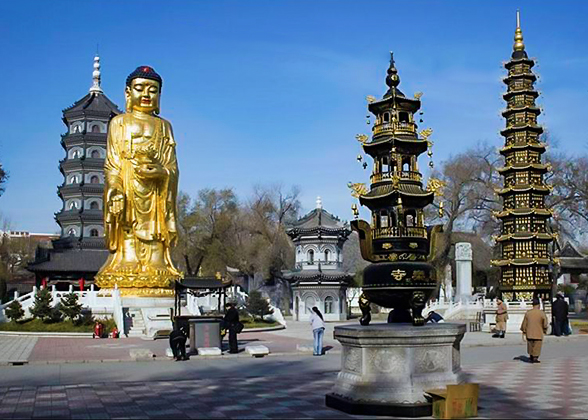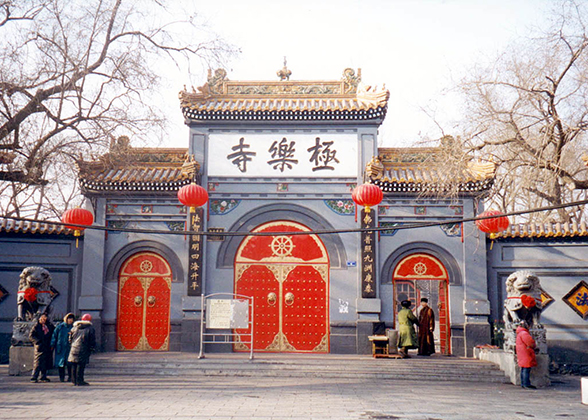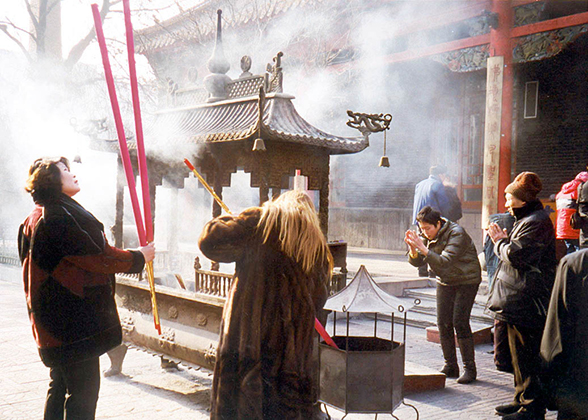Jile Temple
 |
| Jile Temple |
The Jile Temple was built in 1923. It consists of the Mountain Gate, the Heavenly King Hall, the Hall of Mahavira, the Hall of Three Saints, Scriptures-storing Tower, Side Hall, Chanting Hall, Shifang Hall, Anyang Hall and the monks' cells. A seven-story pagoda dominates the temple. Measuring over 30 meters (98 feet) tall, it has eight upturned eaves and elegant Buddhist pictures on the walls in each level. From the bottom to the top, it worships the bronze statues of Sakyamuni Buddha, Amitabha, Medicine Guru Buddha, Bodhisattva Manjusri, Samantabhadra, Kwanyin and Ksitigarbha Bodhisattva.
The Jile Temple strictly follows the traditional Chinese temple style. It is a magnificent and resplendent architectural complex. Every house was built of blue bricks and glazed colored tiles. Facing south, it can be divided into three courtyards on the left, middle and right. The Mountain Gate was built to resemble the Chinese character "山" (mountain in English), thus the name "Mountain Gate". The front hall is the Heavenly King Hall, followed by the Hall of Mahavira, the Hall of Three Saints and Scriptures-storing Tower according to priority.
 |
| Entrance of Jile Temple |
Heavenly King Hall
Hall of Mahavira
Passing through the Heavenly King Hall, visitors come to the Hall of Mahavira, the main hall in Jile Temple. On the corridor that links these two halls, there's any extraordinary 3 meters (9.8 feet) precious iron tripod. It gives dignity to Jile Temple. On the steps in front of the Hall of Mahavira, there is a pair of stone lions command an air of authority. A 2.7 meters (8.9 feet) tall sitting statue of Sakyamuni is set right at the center. The statues of the most distinguished Arhats Kasyapa and Ananda stand on the two sides. The inscription rubbings of the Picture of 500 Arhats are arranged on the east and west walls.
 |
| Grand Hall, Jile Temple |
Hall of Three Saints
On Buddhist festivals on every April 8, 18 and 28 in Chinese lunar calendar, exciting temple fairs are held there. At present, the Jile Temple has been listed as an important cultural heritage site under provincial level protection and key temples in the country. It is not only a Buddhist holy land of northern China, but also a famous scenic site, well known at home and abroad.
How to get to Jile Temple
2. Take Bus 6, 14, 30, 37, 53, 55, 66, 74, 92, 104, or 105 to Nantong Dajie and then walk northwest for 5 minutes to get there.
Harbin Bus Search
| Entrance Fee | CNY 10 |
|---|---|
| Opening Hours | Mar. - Nov.: 8:00 - 16:30 Dec. - Feb.: 8:30 - 16:00 |
- Last updated on Dec. 26, 2023 by Gabby Li -